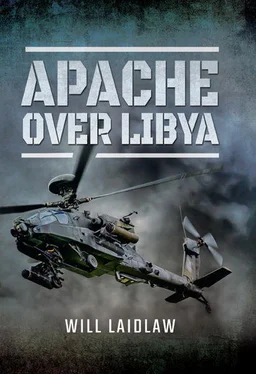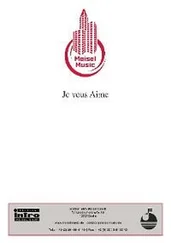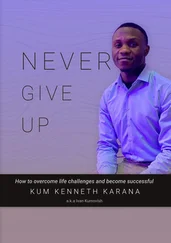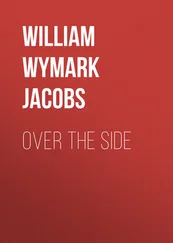Video conferences were held, and while the aircrew slept the risk-holders talked it through. When the critics offered up their opinions the CO asked them what they could do to help. I watched from the sidelines and was pleased that we had a central team who were trying to keep us safe and were managing to persuade the ‘experts’ to do something useful about it. We were in a new type of combat, helicopter pilots weaving to avoid hitting houses and wires while being shot at. We Apache aircrew and the close team, the people who had lived those criticised missions, knew the threat, how to cope and how to keep going.
The London wailing and gnashing of teeth was the backdrop to our own very real angst at the start of July. On our last mission in June, John and I evaded an SA-5 radar lock-on. SA-5 is designed to shoot down high altitude bomber aeroplanes. Its missiles are huge, 10m long, Mach 7 monsters, but there weren’t any of those left; the jets had dealt with them right at the start of the campaign. But we knew the radar was out there, and although there were no missiles associated with it, we still had to evade it because the radar operator could guide other weapon systems on to our position. The SA-5 was, in effect, a highly accurate early warning device for whatever pro-Gad wanted to aim and shoot at us. With the American lady in the wing telling me all sorts of bad news about the SA-5, we had to break the lock and get away. We were horribly exposed, over the sea about 500m from the shore, had nowhere to hide and had to trust the chaff shredding in the tail rotor as we manoeuvred and descended to evade.
Chaff and turn, chaff and turn, descending all the while. Chaffing and evading – there is no more tantalising experience of fear and control than conducting the deliberate degree-perfect angle of bank turn, descending to almost nothing, watching the crests of gentle waves settle to smooth sea massive in your infrared right eye, while firing chaff into the tail rotor to escape the lock-on of Gaddafi’s air defence radar systems. Wild and chaotic, but controlled. Controlled, because otherwise you will be shot or you will crash. Anything other than pinpoint accuracy, black of night over the sea and hell unleashed just beyond the beach, will leave you dead. One-nil to Gaddafi and Campaign Catastrophe for Cameron. Dead British soldiers entombed in shot-up and ditched helicopter swaying with the tide on the seabed. Pinpoint accuracy and lethal aggression in the fight. That is how we kept ourselves alive, and no amount of advice from the distantly concerned in London on how to do it better and run away was going to persuade us otherwise.
The fear I had experienced in June had started to gnaw away at my tolerance of criticism. I took it as a personal attack by people who did not appreciate the fight we were in. The criticism seemed to rest on a theoretical matching of Apache and missile-seeker. But we knew of no one else who had been shot at by these systems, so naturally assumed we knew best.
I knew I had the best team available to succeed in this fight. I believed that their combined advice was all we needed, because they had experienced the fight at first hand; they were our Apache experts, both at sea and over Libya. They were highly experienced combat operators. In their own discrete fields they were also experts in the kind of knowledge and skills we collectively needed to stay ahead of the regime. The ‘punch-in, sit-down, pontificate, punch-out’ staff opinion was not needed where we were. We ten knew best. On reflection, our attitude to the advice we were given could have been more conciliatory. Running away was, perhaps, the right thing to do. But it didn’t feel right, particularly as we had been successful in prosecuting everything that had shot at us. Part of our response was based on confidence and selfbelief and part was meeting staff hostility with the operator’s sense of higher knowledge.
In any case, I was experiencing another frustration from the UK that bewildered and angered me – the denial of the Operational Allowance.
We had expected to receive the Operational Allowance: a sum of money paid daily, we thought, to recognize the sacrifice of our people on operations. We were wrong. The allowance, we were told, was about proximity to risk, not commitment to an operation. As such, HMS Ocean was deemed physically too far away from Libya to attract the money for those who remained inside the vessel. Only people who got within twelve nautical miles of Libya would get the pay, and then only on the days they made the journey.
If the men and women in Ocean had been conducting clerical work in the fortified centre of Camp Bastion in Afghanistan they would have received the allowance. But our soldiers, sailors, marines and airmen in Ocean got nothing, not a penny. It was a baffling, parsimonious and divisive decision. Hard-working men and women committed to an operation with little notice and much uncertainty saw the irony in their plight and concluded they were not valued. My mother mentioned the folly in writing to her MP. The MP for Gosport since 2010, a large naval constituency, wrote back expressing her sympathy and reassured her constituent that she would write to the Defence Secretary on the matter, adding that we were doing essential work in support of RAF pilots. Mum responded, pointing out that we were soldiers and sailors at sea supporting Royal Navy and Army pilots in demanding circumstances and that our experience of risk and rigour was valid and ought to be better appreciated. She also made the point was that HMS Ocean was not an Italian hotel.
First admonished by the experts and then trivialized by the beancounters, our morale took a dive. From the most junior soldier to the squadron headquarters we felt alone in a dangerous place with only criticism, pressure and zero appreciation of our work from outside. The CAOC understood it, the Commodore, the Captain, the ship’s company and the CO with us in Ocean understood it, and we most definitely knew it. But it seemed this understanding was limited to us and it had not percolated to London. The irony was that, despite everyone watching us, we were alone.
After the bad news about the Operational Allowance, but insisting on no let-up in our output, we looked to the CAOC for our next turn of the wheel.
To take us away from Zlitan, Jack and Chris in the CAOC proposed a new area to the west of Tripoli, and we were happy to take up the offer. They had argued hard to get us into a raiding strategy by which we could sting pro-Gad in one place, move hundreds of miles up the coast, then take him on in a new place the next night. This was more relevant to ‘cognitive effect’ and it kept us away from pattern-setting in one place, in which case we would surely be shot down. This was safe regime territory full of smuggling routes from Tunisia further to the west and it provided Gaddafi with all the lines he needed to keep the FLF tied up in the Nafusa mountains to the south. The capital was his, even though NATO restricted regime movement. Despite this, the familiar face of the regime, Moussa Ibrahim, regularly issued statements from Tripoli proclaiming impending victory and denouncing NATO.
Where Zlitan and Al Khums offered local depth to Khamis, the area west of Tripoli was his father’s and their combined existential and strategic depth. This was where 80 per cent of their fuel was coming from and it was running out, with an estimated three months’ supply remaining. The regime had to control the capital and the roads west to Tunisia. Oil, fuel and weapons filled those arteries and gave sustenance to the man who saw himself as both a Nasser-like Arab nationalist and a uniter of Africa.
Raised in the desert during Italian colonial rule, Muammar Gaddafi grew up to loathe Europe and develop an extraordinary sense of his own heritage and entitlement. His ideas and his zeal were infectious. He joined the army, continued to recruit support for a utopian Arab Libya at the centre of Africa and in 1969, at the age of twenty-seven, overthrew King Idris in a bloodless coup. Wealth redistribution, expunging foreign influence and consolidation of power were his priorities. The ludicrous three-part counterblast to liberal democracy, Al-Kitab al-Akhdar (The Green Book), followed, and he slipped from revolutionary to eccentric sponsor of much of what ailed the West. Insisting that democracy and capitalism were evil lies and that his skewed version of social revolution be taught weekly in all schools, Gaddafi set about educating Libya from the top and at its grass roots simultaneously. He centralized power, stamped on political dissent, amassed huge wealth and filled the prisons. His sponsorship of terrorism in the 1980s, killing British, American and French citizens in large numbers, set him apart as a uniquely detested leader internationally. However, despite his continued sense of regional importance, the 1990s and early 2000s saw him being brought back from international isolation. Steps towards resolving the Lockerbie criminal trial and the payment of compensation to victims’ families were accompanied by an easing of sanctions. The final big-ticket move was his buying of the ‘if you have weapons of mass destruction we will come and get you’ message on the banner carried by Rumsfeld and Bush as they rattled into Iraq in 2003. Gaddafi had some and he didn’t want to get invaded, so he handed them over to Blair and everyone had a big hug. Now, eight years later, NATO leaders were over the happiness of tea in a tent and a dismantled nuclear programme. Gaddafi had killed hundreds through his sponsorship of terrorism, he was promising carnage to his own people, and now it was time to unseat him. By July 2011 both the rebels and the regime had everything to gain, and the civil war showed no sign of easing. The wicked colonel had to protect what he had left while squeezing the FLF on all fronts.
Читать дальше












